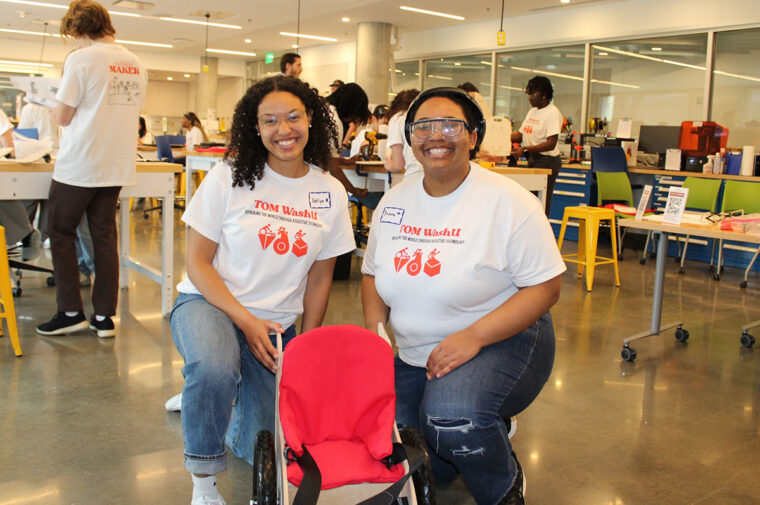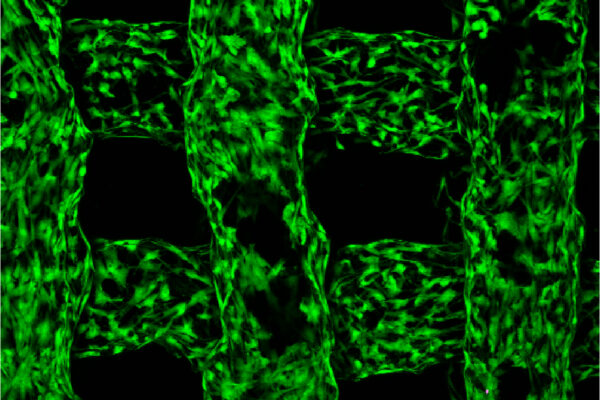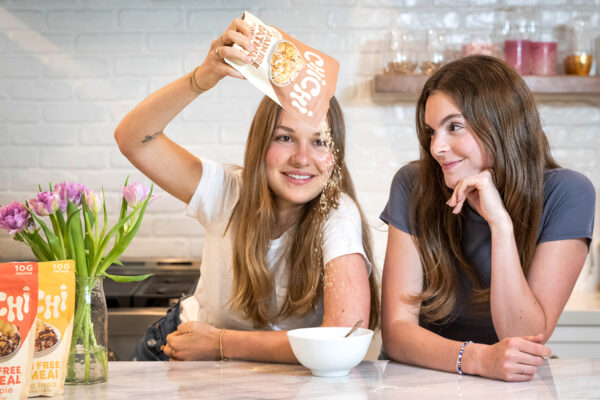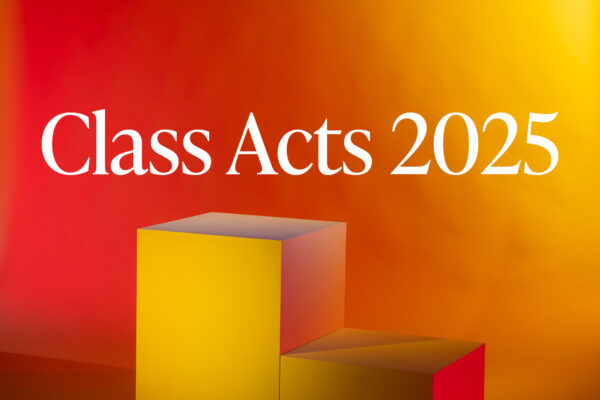Biomedical engineering students at Washington University in St. Louis don’t wait until graduation to get to work. Especially when it comes to assisting vulnerable people who need access to assistive technology. Instead, inspired by what they saw at a Georgia Tech University maker event, seniors Kaitlyn Sallee and Brianna Duhart, started their own chapter of Tikkun Olam Makers and hosted an event recently to build wheelchairs for young children whose families otherwise could not afford them.
Tikkun Olam is a Hebrew phrase which means “to repair the world,” and the maker group is a nonprofit that supports students who seek to apply technology to solve unmet challenges faced by people with disabilities and other vulnerable groups in local communities. Sallee and Duhart both served as fellows with TOM Global.
More than 30 undergraduate students from Washington University in St. Louis and graduate students from the WashU Medicine Program in Occupational Therapy (OT) spent March 29 building and fitting wheelchairs for young children.
Prior to the event, group members met with OT professors and contacts in other departments to distribute flyers and intake forms. They also relied on word of mouth through clinicians working with patients.
“It’s really difficult for younger kids, especially under 3, to get a wheelchair that is covered by insurance,” Sallee said. “It takes a huge toll on families whose best option is to carry the child around themselves, and poses challenges to the child’s psychological development and sense of self.”
The students knew they would get interest in their club, which has quickly grown to include 60 members.
“We took part in the Student Activities Fair in the fall, and interest grew quickly from there.” Sallee said. “We realized many students are looking for more hands-on experiences that aren’t necessarily research-based.”
TOM WashU offers computer-aided design, woodworking and inclusive design training to its members. For this event, OT provided additional disability etiquette training.
Duhart coordinated one of the most labor-intensive parts of the planning process — preparing 135 plywood parts for the chairs using a computer numerical control router at an off-campus maker space. The rest of the executive team spent three weeks cutting and sewing foam and fabric seating, as well as foot and waist straps, for each chair. Complete, prefabricated build sets of wood, wheels, seating and fasteners were placed at tables in the Spartan Light Metal Products Makerspace before the event so that they would be ready for the group to build “like you would do with IKEA furniture,” Sallee said.
It was part of making the experience as stress-free as possible for the families.
“We wanted to get through the build quickly so we could get to the part where the kids get to try out their chairs,” Sallee said.
As the students finished building, two children waited with their families in another room: a 5-year-old whose current wheelchair was too bulky to maneuver around the family home, and a 2-year-old who was new to using a wheelchair.
It took just over two hours for the group to assemble the chairs. Several professors were on hand to help, including Patricia Widder, a teaching professor in biomedical engineering and the group’s faculty adviser; Ruth Okamoto, a teaching professor in mechanical engineering and materials science and director of the Spartan Light Metal Products Makerspace; and Joe Klaesner, a professor of practice in biomedical engineering.
“The OT students led the fitting process, and we were able to make the modifications needed in real time,” Sallee said. “Things like adding padding for knees, and adjusting strap sizes and foam positioning.”
Then it was time to let the recipients try out their new chairs.
“It’s so gratifying to see a child use what you’ve built to explore their environment independently,” Sallee said.
The last step was a fun one: helping the children make the chairs their own with decorative stickers.
“We’d been told they loved Bluey and the St. Louis Cardinals, so we made sure to have those,” Sallee said.
The group has enough materials to build three more chairs for children ages 6 months to 5 years, which they plan to donate to local hospitals or schools. The Women’s Society of Washington University and the MO Better Foundation sponsored the event.
Originally published on the McKelvey Engineering website



